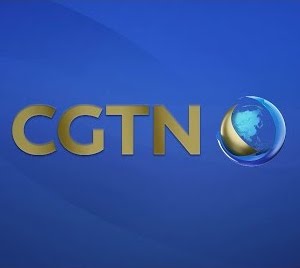Wherefore go the neocons?
Approaching last week's mid-term Congressional elections, the positions asserted by the misguided foreign policy planners commonly referred to as "neocons" tilted toward the desperate, even when evaluated in the context of their dangerous worldview. In the aftermath of the Democrats bruising electoral triumph, it should be interesting to see where they align themselves politically and what strategy they employ to assure their continued influence in Washington.
Very little has gone according to the neocon plan for the Middle East. Iraq has descended into civil war, Iran swaggers with impunity, and democratic elections have either endorsed dictatorship (Hosni Mubarak's landslide in Egypt) or legitimized terrorism (Hezbollah and Hamas's big electoral wins in Lebanon and Palestine). Plus, perennial pain-in-the-neocon-neck, Syrian President Bashar Assad, puts the icing on the cake by playing the good cop and repeatedly calling for a resumption of peace talks with Israel (what some curiously refer to as "begging for peace"). Furthermore, a lack of interest in, or progress on, the Rafik Hariri investigation has led to a European thaw towards Syria - even Tony Blair sent a high-level envoy to Damascus to meet with Assad, and the EU trade agreement with Syria seems to be back on track.
The neocons just can't take it, and have lashed out with criticisms and assertions more irrational than ever - such as exaggerated, alarmist analyses about Syria's closeness to Iran, and downright delusional strategy making when it comes to Lebanon. The best example of this was a recent Wall Street Journal opinion piece by Bret Stephens, essentially blaming Secretary of State Condoleezza Rice for helping Bush "lose" Lebanon. I would venture to guess that Mr. Stephens did not see the clip on al-Jazeera, during the Summer War, in which a woman in Beirut being interviewed asked if she could close by saying something in English. The words she chose: "Mr. Bush, F___ your democracy!!!" That woman's sentiments, vulgar though they may be, pretty much sum up how disconnected these pundits are from the reality of Arab public opinion. (continued...)
After blasting Madrid Peace Conference architect James Baker III as a "sell out", Stephens goes on to quote Walid Phares, who is on the payroll of an organization called the Foundation for the Defense of Democracies - its Board of Advisers includes the likes of Joe Lieberman, Richard Perle, etc. - just so you know where he's coming from. Phares suggested that Lebanon can be saved by getting all the Lebanese NGOs together in DC to launch a second "Cedar Revolution".
Lebanese NGOs? With all due respect to patriotic, dignified Lebanese-American activists like my friend John Akouri: unless Lebanon's citizens will be helped by cocktail parties in New York City where self-obsessed exiles ask people they don't even know to shell out $50 in order to show off their friendship with the likes of former CIA head James Woolsey, I really don't know of much that the American-based Lebanese NGOs will be able to contribute, given the forces at play.
Anyway, the neocons are grasping at straws as their plans unravel. Ahmad Chalabi blames Wolfowitz, while Perle passes the buck to Bush. So the cracks were already on the wall before Tuesday's big defeat for the Bush agenda. In the aftermath, Donald Rumsfeld resigns as Secretary of Defense and is replaced by a Bakerite, which surely incensed the neocons. The question now is: just how stubborn is Bush? Will he "stay the course" or will he partially backtrack and follow Baker's advice to ask Syria and Iran to help stabilize Iraq? Or will he really roll the dice and facilitate Syrian/Israeli peace negotiations, as I and others have vigorously advocated?
Basically, the Democrats' big win last week raises the stakes even higher for Bush and the Republicans as they figure out what strategy to embrace for the Middle East looking toward 2008. The wily neocons may figure that the GOP cannot help them, and look for a new home amongst the Democrats. There is no reason to believe that the likes of Hillary Clinton (enormously emboldened by last Tuesday's result) would not take Wolfowitz, Perle, etc. into her inner circle. And what would that mean for John McCain, who would otherwise have likely continued to rely on this influential DC crowd? Is the Republican base finally going to realize, in the aftermath of Tuesday's terrible defeat, just how detrimental the neocons have been to our party, and our country for that matter? (I, for one, will do everything I can to facilitate that outcome.) And if so, does this give the likes of Nebraska Senator Chuck Hagel, who has been a vocal critic of their policies, a higher profile and potent ammunition for the GOP Presidential Primary?
Wouldn't it be interesting to see McCain, drunk on neocon Kool-Aid and fearful of losing their support, square off against a more practical Hagel who connects the dots for the Republican base, showing how reckless neocon policies led to the GOP's defeat in 2006 and must be stopped. Nothing would be better for America's long-term foreign policy interests than for the 2008 Primaries in both parties to shine a very bright and very public light on the behind-the-scenes maneuverings of the neocons.
Very little has gone according to the neocon plan for the Middle East. Iraq has descended into civil war, Iran swaggers with impunity, and democratic elections have either endorsed dictatorship (Hosni Mubarak's landslide in Egypt) or legitimized terrorism (Hezbollah and Hamas's big electoral wins in Lebanon and Palestine). Plus, perennial pain-in-the-neocon-neck, Syrian President Bashar Assad, puts the icing on the cake by playing the good cop and repeatedly calling for a resumption of peace talks with Israel (what some curiously refer to as "begging for peace"). Furthermore, a lack of interest in, or progress on, the Rafik Hariri investigation has led to a European thaw towards Syria - even Tony Blair sent a high-level envoy to Damascus to meet with Assad, and the EU trade agreement with Syria seems to be back on track.
The neocons just can't take it, and have lashed out with criticisms and assertions more irrational than ever - such as exaggerated, alarmist analyses about Syria's closeness to Iran, and downright delusional strategy making when it comes to Lebanon. The best example of this was a recent Wall Street Journal opinion piece by Bret Stephens, essentially blaming Secretary of State Condoleezza Rice for helping Bush "lose" Lebanon. I would venture to guess that Mr. Stephens did not see the clip on al-Jazeera, during the Summer War, in which a woman in Beirut being interviewed asked if she could close by saying something in English. The words she chose: "Mr. Bush, F___ your democracy!!!" That woman's sentiments, vulgar though they may be, pretty much sum up how disconnected these pundits are from the reality of Arab public opinion. (continued...)
After blasting Madrid Peace Conference architect James Baker III as a "sell out", Stephens goes on to quote Walid Phares, who is on the payroll of an organization called the Foundation for the Defense of Democracies - its Board of Advisers includes the likes of Joe Lieberman, Richard Perle, etc. - just so you know where he's coming from. Phares suggested that Lebanon can be saved by getting all the Lebanese NGOs together in DC to launch a second "Cedar Revolution".
Lebanese NGOs? With all due respect to patriotic, dignified Lebanese-American activists like my friend John Akouri: unless Lebanon's citizens will be helped by cocktail parties in New York City where self-obsessed exiles ask people they don't even know to shell out $50 in order to show off their friendship with the likes of former CIA head James Woolsey, I really don't know of much that the American-based Lebanese NGOs will be able to contribute, given the forces at play.
Anyway, the neocons are grasping at straws as their plans unravel. Ahmad Chalabi blames Wolfowitz, while Perle passes the buck to Bush. So the cracks were already on the wall before Tuesday's big defeat for the Bush agenda. In the aftermath, Donald Rumsfeld resigns as Secretary of Defense and is replaced by a Bakerite, which surely incensed the neocons. The question now is: just how stubborn is Bush? Will he "stay the course" or will he partially backtrack and follow Baker's advice to ask Syria and Iran to help stabilize Iraq? Or will he really roll the dice and facilitate Syrian/Israeli peace negotiations, as I and others have vigorously advocated?
Basically, the Democrats' big win last week raises the stakes even higher for Bush and the Republicans as they figure out what strategy to embrace for the Middle East looking toward 2008. The wily neocons may figure that the GOP cannot help them, and look for a new home amongst the Democrats. There is no reason to believe that the likes of Hillary Clinton (enormously emboldened by last Tuesday's result) would not take Wolfowitz, Perle, etc. into her inner circle. And what would that mean for John McCain, who would otherwise have likely continued to rely on this influential DC crowd? Is the Republican base finally going to realize, in the aftermath of Tuesday's terrible defeat, just how detrimental the neocons have been to our party, and our country for that matter? (I, for one, will do everything I can to facilitate that outcome.) And if so, does this give the likes of Nebraska Senator Chuck Hagel, who has been a vocal critic of their policies, a higher profile and potent ammunition for the GOP Presidential Primary?
Wouldn't it be interesting to see McCain, drunk on neocon Kool-Aid and fearful of losing their support, square off against a more practical Hagel who connects the dots for the Republican base, showing how reckless neocon policies led to the GOP's defeat in 2006 and must be stopped. Nothing would be better for America's long-term foreign policy interests than for the 2008 Primaries in both parties to shine a very bright and very public light on the behind-the-scenes maneuverings of the neocons.
















